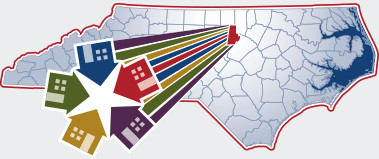HUD Extends Eviction Moratorium to June 30, 2021
DHA has just received this important notice from HUD:
Yesterday, the Centers for Disease Control and Prevention (CDC) issued an Order extending the eviction moratorium to June 30, 2021. The updated Order is available here. The Order continues to ban evictions for certain renters under Section 361 of the Public Health Service Act (42 U.S.C. § 264) and 42 CFR § 70.2. As described in the Order, residents qualifying as a "Covered Person" cannot be evicted for nonpayment of rent when a declaration under the penalty of perjury is provided to their landlord.
In addition to extending the effective period of the prior Orders, the updated Order made several modifications to incorporate HHS/CDC FAQs that were originally issued in October 2020 and reissued in January 2021 and February 2021. A description of each modification in the updated Order is as follows:
- The "Statement of Intent" section clarifies that an intended purpose of this Order is to mitigate the spread of COVID-19 by temporarily suspending nonpayment of rent evictions for Covered Persons under the Order.
- The "Applicability" section added the following points:
- Signed declarations previously submitted remain in effect. Thus, residents who previously submitted a declaration do not need to resubmit and should have continued protections until June 30, 2021.
- Evictions for nonpayment of rent initiated but not completed prior to September 4, 2020 are subject to the Order. Evictions completed before September 4, 2020 are not subject to the Order.
- While the Order does not prohibit evictions for engaging in criminal activity while on the premises, Covered Persons may not be evicted on the sole basis that they are alleged to have committed the crime of trespass (or similar state-law offense) where the underlying activity is a Covered Person remaining in a residential property despite nonpayment of rent.
- Individuals who are confirmed to have, who have been exposed to, or who might have COVID-19 and take reasonable precautions to not spread the disease should not be evicted on grounds that they pose a health or safety threat to other residents.
- The "Eviction and Risk of COVID-19 Transmission" section explains that a single eviction would not result in interstate displacement, but the mass evictions that would occur in the absence of this Order would increase the spread of COVID-19.
- A new section titled "Declaration Forms" was added that explains:
- To qualify as a Covered Person, the resident must provide a completed and signed declaration to their landlord to invoke eviction protections;
- A Covered Person is not obligated to use the CDC declaration; any written document containing the same information as the CDC declaration is sufficient;
- All declarations or written documents must be signed and include the penalty of perjury statement;
- Translated declarations are acceptable; and
- It may be appropriate for one member of the family to provide an executed declaration on behalf of the other adult residents who are on the lease - this will protect the entire household from eviction.
- The "Findings and Action" section was modified to explain that this Order is not a rule within the meaning of the Administrative Procedure Act and, to the extent a court finds that the Order qualifies as a rule, there is good cause to dispense with prior public notice and comment.
As a reminder, the Order does not relieve the residents' obligation to pay rent, and residents must continue to comply with terms under the lease. Nothing in the updated Order precludes the landlords from charging or collecting fees, penalties, or interest as a result of the residents' inability to pay rent on a timely basis. Evictions unrelated to nonpayment of rent can still take place except evictions described in 2c or 2d above. Any State, local, Tribal, or territorial area with a moratorium on residential evictions that provides the same or greater level of public health protection can supersede the updated CDC Order. To the extent any provision of this Order conflicts with prior Orders, this Order is controlling.
In addition, PIH's Eviction Prevention and Stability Toolkit soon will be updated. In the interim, several attachments in the toolkit can still be referenced since it was built on innovative practices from PHAs around the country and existing HUD guidance. For example, PHAs can permit repayment agreements and update repayment agreement policies, adopt policies for retroactive interim reexaminations, provide direct outreach to households behind on rent, review policies on minimum rent and financial hardship exemptions, and proactively connect residents to local resources for eviction prevention. Finally, PHAs can remind residents that the Economic Impact Payments are not included in the calculation of income for purposes of income certification and can be used as a resource to help with unpaid rent.


